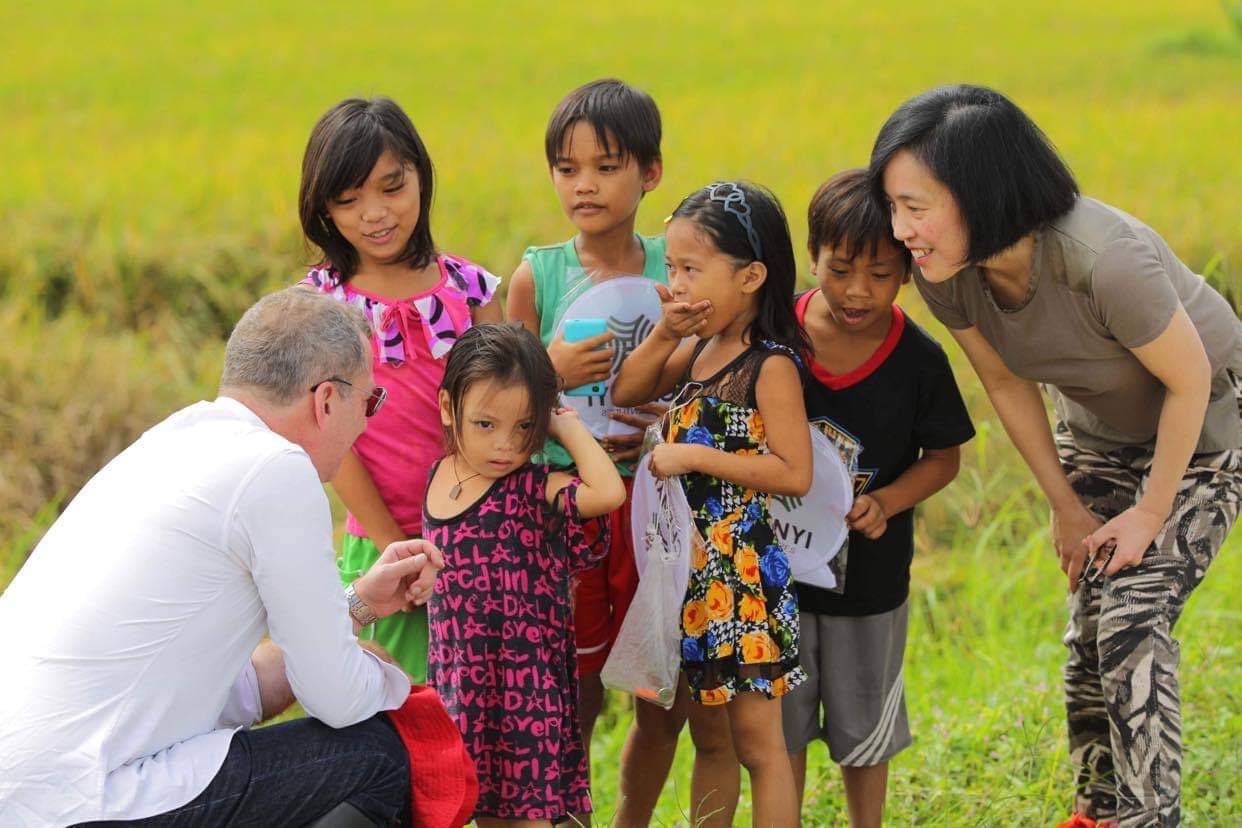Bruised, battered, but unbowed

Chen Yi Agventures has helped farmers in Supertyphoon “Yolanda”-stricken areas increase their income from rice.
Just when the trailblazing husband-and-wife team of Patrick Renucci and Rachel Renucci-Tan were expanding at breakneck speed, getting more restaurants and supermarkets to patronize the top class Dalisay Rice produced and processed in Alangalang, Leyte province, COVID-19 struck and pushed the Philippines into quarantine.
At first, the couple who invested heavily in the state-of-art Renucci Rice Processing Center in an area once hit hard by Supertyphoon “Yolanda” were benefiting from the lockdown imposed starting March, as they were among the few producers who responded swiftly to the spike in the demand for rice, not just in Metro Manila but also in Cebu, Quezon and Legazpi. But as quarantine measures persisted, leading to the closure of thousands of businesses and the laying off of millions of Filipinos, the Renuccis had to confront the bitter reality that they should pivot their business or else they would perish. And pivot they did, albeit at great effort and sacrifice.
Rachel, cofounder and president of Renucci Rice producer Chen Yi Agventures, told the Inquirer that as early as April, they decided to quickly develop their e-commerce platform so that they could continue selling their award-winning Dalisay rice to buyers stuck in their homes.
They also felt they had no choice but to introduce a lower-cost variety to Dalisay—Dinorado Heirloom—and reduce the selling price of the premium rice to better compete with imported rice that had flooded the market.
“Since it takes 2 kilograms of palay to produce 1 kg of rice, if palay prices are at P17 per kg, then it would cost P34 per kg of palay to produce 1 kg of rice. Then we need to add on the cost of drying, milling, packaging, logistics, sales and marketing plus retailers’ and our own margin. This would bring up the price of rice to over P60 per kg (higher in supermarkets), versus P36-P38 per kg of imported rice,” Rachel said.
“To survive, we had to bring down the price of our rice. By the grace of God, the price of palay fell as the productivity and the income of our farmers increased. This was the only way for us. At P16-P17 per kg of palay, we would never have made it. No other local rice producer could have made it. And the Philippines would have to rely only on imported rice,” she added.
The Renuccis believe, however, that consumers will again put a premium on quality when the country recovers from the havoc caused by the pandemic. By then, rice will not be looked at as a mere commodity where the price is the only differentiator. When that happens, they are confident that Dalisay will again reign supreme because of its compelling attributes.
Their faith in their product and their mission to uplift the lives of farmers while producing world-class rice that Filipinos can be proud of has sustained them through the added business challenges brought about by the unprecedented public health and economic crisis.
Because they did not lose sight of their mission and vision for their company, they continued buying palay from partner farmers at above market prices in April and May when lockdown measures were at their most stringent, thus ensuring the farmers of continued income. But more importantly, the Renuccis get fulfillment from knowing that through their direct partnership with the farmers, they were able to raise their output from 60 bags of rice per hectare to as much as 150 bags per hectare, through a combination of better seeds, increased mechanization and superior planting technologies.
This puts the farmers and the Renuccis in a position of strength that will enable them to take advantage of opportunities when the economy starts gaining lost ground.
They are also excited about opening of the country’s first Farmers’ Academy in collaboration with the Technical Education and Skills Development Authority, where farmers will be trained on how to increase their output using the most advanced farming technologies.
They will work alongside the Renucci team on a 10-hectare model farm where experts will demonstrate the impact of full mechanization, how to tap deep wells to irrigate the land and finally how to eliminate “pilapils” by using laser-grader technology to level and connect land parcels for improved economies of scale.
And from these lands will come premium quality rice that has won recognition for the Philippines.
“We believe that in the long run, chemical free, freshly produced rice that not only tastes good but is healthy will win. If we keep on helping our farmers, increasing their output and improving the quality of their harvest by using the right inputs and the best technology, we will succeed. Our economy will recover and the first thing that consumers will do is to spend on things that are sacred for their well-being. That’s good rice, delicious, healthy rice, rice they can trust because they know exactly where it comes from. Rice that’s produced by Filipino farmers. Rice that’s got the quality because the best technology was used to produce it,” Rachel said.
The Renuccis realize, however, that it will take some time before the economy returns to pre-COVID-19 levels thus it will have to adjust accordingly and recover slowly with the market that it serves.
“We continue to produce great rice—this will not change. Supermarkets and restaurants are now ordering, albeit at a significantly reduced capacity. We are grateful to those who have remained loyal to Renucci Rice and to new customers who just trusted us amid their own pain. We are getting outstanding reviews on Facebook and on our website, confirming our belief that healthy, high quality rice will continue to resound with a growing audience. Our repeat order rate online is currently at 38 percent and with a rapidly expanding market, we are confident about our prospects for 2021,” Rachel said.


